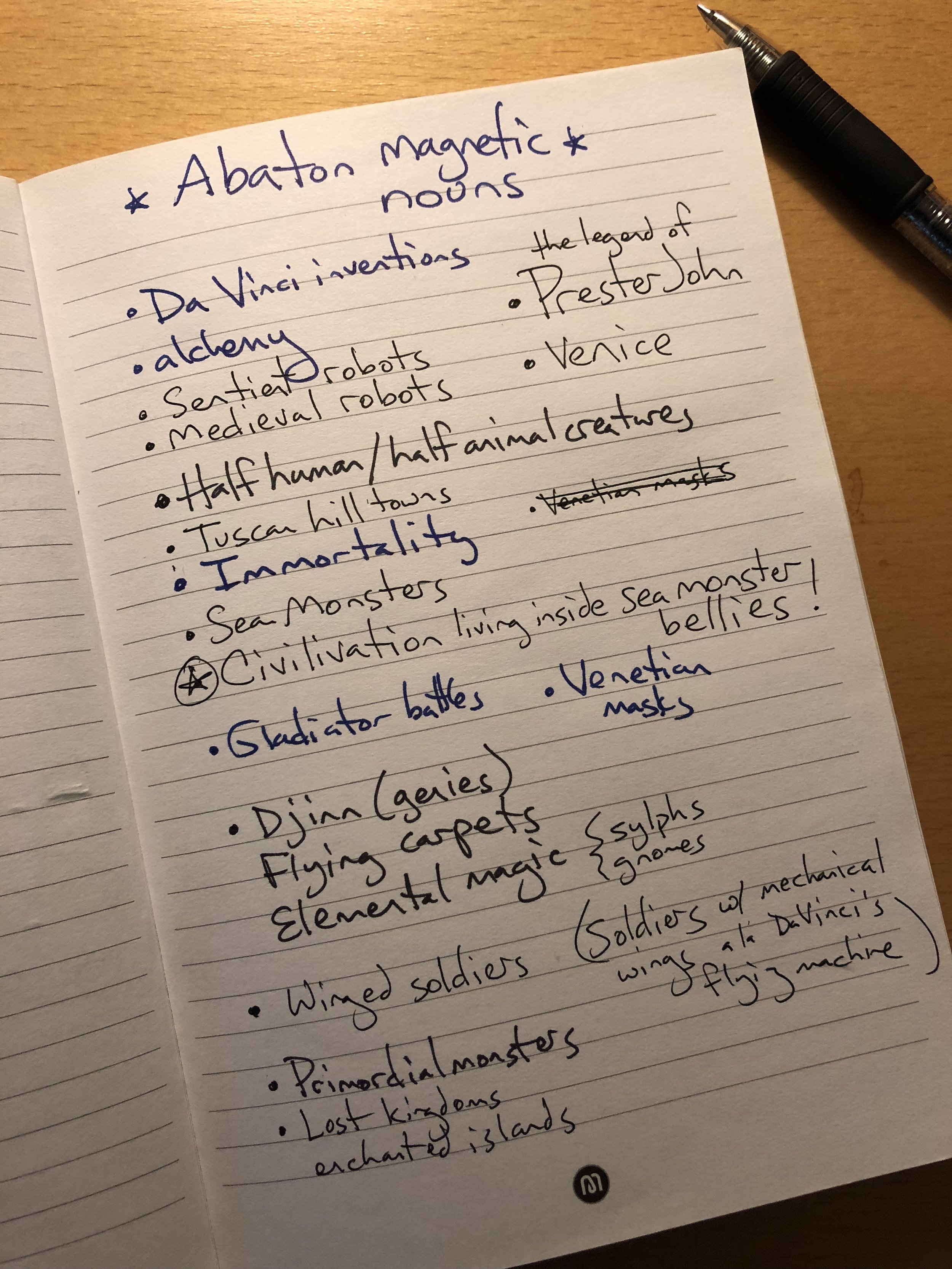Magnetic Nouns
/Discover what makes your storytelling unique
Each of us has our own unique way of telling stories. As much as I admire C.S. Lewis and J.K. Rowling, I could never have created Narnia or Hogwarts. But neither of them would have created the mythical America of my Clockwork Dark books. The Nine Pound Hammer and its sequels grew from my passions for Southern folklore, American history, magical adventures, trains, pirates, gunslinger Westerns, medicine show culture, and early 20th century blues, jazz and country music. Those were the interests I brought to the table when creating those books.
They were mine. What are yours?
One of the most helpful exercises for discovering your own unique storytelling voice I learned from the writer Ray Bradbury. In an essay called “Run Fast, Stand Still . . .”, he shared how at one point early in his career, he came up with a list of interesting sounding titles. The Ravine. The Town Clock. The Carnival. And so on.
Years later, Bradbury chanced upon the forgotten list and was surprised to discover how many of his novels, such as Something Wicked This Way Comes and Dandelion Wine, corresponded to titles on those lists. He hadn’t done it intentionally. He hadn’t written the novels based off the lists of titles. His stories grew from his singular imagination. As Bradbury said, it was as if the list of titles had been “hidden under the trapdoor on the top of [his] skull.” They were ideas that captivated his imagination and were lurking about under that trapdoor just waiting for him to let them out.
Discover what captivates your imagination and turn those ideas loose in stories.
In writing workshops, I call these Magnetic Nouns — the people, places, and things that we are drawn to uncontrollably like a magnet. I make lists of words that fascinate me. I look for ways to bring these provocative ideas into my stories, in particular in unexpected combinations, such as cowboys and magic (The Nine Pound Hammer) or Renaissance Venice and robot servants (The Wooden Prince).
What I find interesting is that if I do this exercise with a roomful of students, several writers might also have magic as a Magnetic Noun. Or might have robots or Venice. Their lists might share a few Magnetic Nouns with one another. But will any two writers have the exact same list? Never.
It’s the combination of disparate ideas that makes your imagination singularly your own.
So when you discover your own vast treasure horde of unique Magnetic Nouns, when you bring in your personal passions and varied interests, you can use them to create the stories that only you could possibly write. Not the story that C.S. Lewis or J.K. Rowling would write. But the stories that are each our own.
Exercise: Write a list of 10 – 20 things that fascinate you. Keep adding to that list every day. And consider how the different Magnetic Nouns might come together in your story in fascinating and unexpected ways.
